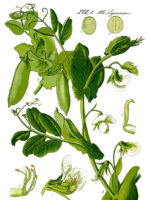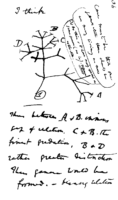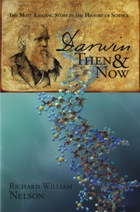Mendel Rescued Darwin – To a Point
 Mendel rescued Darwin’s theory – to a point. By the end of the nineteenth century, Charles Darwin’s influence continued to deteriorate primarily due to his obsolete inheritance theory. In the search for a scientifically valid inheritance theory, evolution scientists in 1900 rediscovered Gregor Mendel’s genetic inheritance theory, published thirty years earlier.
Mendel rescued Darwin’s theory – to a point. By the end of the nineteenth century, Charles Darwin’s influence continued to deteriorate primarily due to his obsolete inheritance theory. In the search for a scientifically valid inheritance theory, evolution scientists in 1900 rediscovered Gregor Mendel’s genetic inheritance theory, published thirty years earlier.
Mendel’s theory delivered what Darwin was missing – a scientifically valid theory of inheritance to drive evolution forward. Inheritance is the second topic of the V.I.S.T.A. acronym (Variation, Inheritance, Selection, Time, Adaptation) developed by Niles Eldredge of the American Museum of Natural History to describe Darwin’s theory – the second of natural selection’s five pillars. Not surprisingly, even Darwin was skeptical of his model of inheritance, noting –
“The laws governing inheritance are, for the most part, unknown.”
Mendel, a contemporary of Darwin, unwittingly solved Darwin’s inheritance problem. In 1866, Mendel, a German botanist and mathematician, uncovered the laws governing inheritance in the published paper Experiments on Plant Hybridization by studying the inheritance patterns in pea plants (pictured left).




